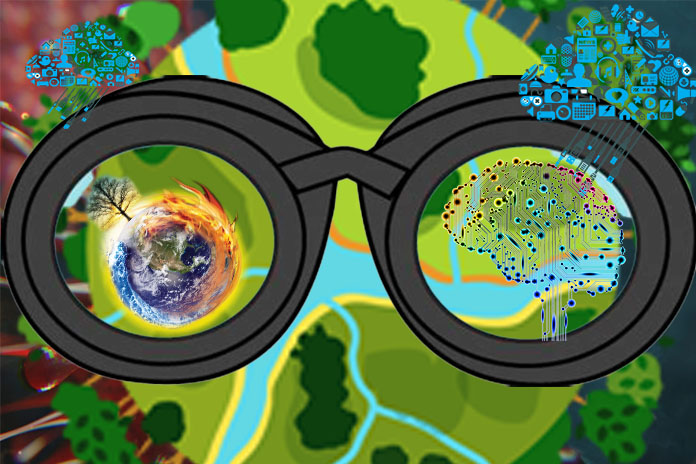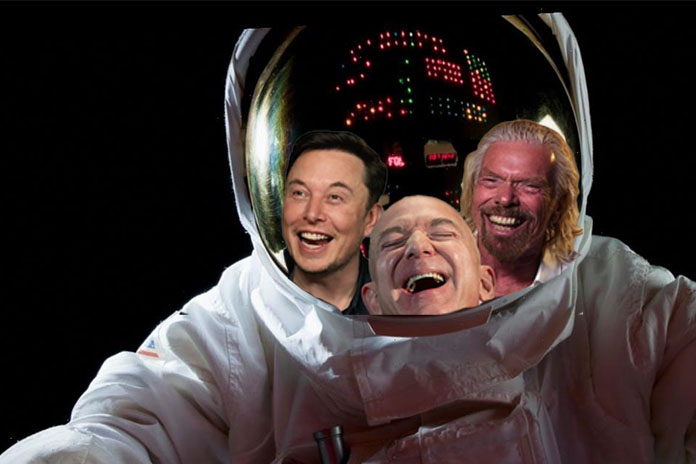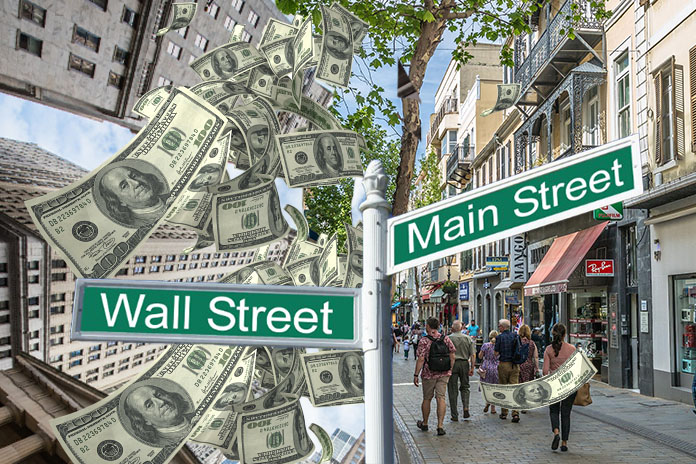
THERE are periods in mankind’s existence which seem to exhibit stasis, such as between the Stone, Bronze and Iron Ages. That’s in part likely to stem from a lack of written records and we have only archaeological evidences to rely on to second guess what had transpired in those societies.
The same had been said — perhaps unfairly — of the Medieval Age when much of human activities were regulated by ecclesial and feudal authorities. That changed drastically with the advent of the late 17th century Enlightenment which was midwifed by the translations of classical Greek texts in the new centres of scholastic learning in Moorish Spain.
That ushered in an age of inquiry into new ideas and vigour in the sciences egged on by the advent of the Gutenberg printing presses that enabled widespread debate and discussions. The progress in the sciences led to the Industrial Revolution of the late 18th century before we entered the post-war Microchip Revolution era and now our modern computer and Internet age.
These changes also spawned new perspectives into how societies can or ought to be run based on disparate ideologies such as nationalism, colonialism, capitalism, communism and fascism, which not unlike the earlier religious wars led to convulsions and human conflicts, except on a much larger scale. Both fascism and communism have largely been marginalised in the aftermath of World War II and the Cold War, though some vestigial strains remain.
In The Name Of Destiny
Perennial issues of race, gender and social inequalities however still persist in the current global order. All these developments in history including the societal and global disruptions have been primarily the outcome of relentless human efforts and progress.
These however often occur at the expense of human exploitation and indeed also abuse and even attempted colonisation of Nature itself — or as the American rock band Eagles put it in their song The Last Resort “in the name of destiny and in the name of god”.
Forests in the Northern hemisphere were denuded and supplanted by picturesque landscapes (we call them Instagrammable these days) while the jungles in the South were despoiled and converted to colonial rubber, sugar and cotton plantations. In our time, the ongoing encroachment to transform acreage for palm and livestock persists as a means to satiate human consumption on a global scale. These activities also necessitated the use of polluting fossil fuels to transport goods and people.
But as we have found out, that all comes at a cost once Nature has come a knocking for the sacrificial debt incurred. With the inconvenient truth of a planet warming and the unleashing of new viruses, humans are now confronted with the wrath of Mother Nature at a time of eroding trust in human institutions especially after the perceived mismanagement and bungled efforts of governments and supranational bodies to contain the coronavirus pandemic. The exponential viral mutations keep running ahead of linear human thinking.
These developments have exposed manifold fragilities as well as exacerbated myriad social gaps especially in human societies across the globe.
The world’s 10 richest men saw their wealth more than doubled since March 2020, according to the charity Oxfam who also noted that poverty accounted for 21,000 deaths each day. The World Bank has warned that the pandemic-induced recession in 2020 had left around 60% of low-income countries in or at high risk of debt distress with income per capita forecast to remain below pre-pandemic levels this year in half of them.

Images of billionaires jostling to be the first in space while millions globally perish from the lack of access to vaccines reflect the widening disparity of wealth.
Disparities which only a mere few decades ago had fuelled calls for revolution, and which seeds were sowed much earlier during the French Revolution under the rallying cries of liberté, égalité, fraternité that toppled the old institutional pillar of the divine rights of kings and gave rise to the roots of nationalism that put paid to the anciens régimes of the old European order.
Fear Of Irrelevance
There have been a lot of new catchphrases and constant refrains, for example that of the ‘new normal’ or resilience. Talk is however cheap when we don’t walk what’s said. There is always the public perception that the rich and powerful — individuals, nations and corporations (the US Supreme Court has stated “corporations are people too”) – benefit from a different sets of rules which are often manipulated to condemn those who are worse off.
For instance, cheap money from global central banks from quantitative easing (QE) has served primarily to enrich the haves and not the have-nots, and propping up Wall Street enterprises rather than Main Street businesses during the pandemic. Big businesses in America probably soaked up a major portion of federal Covid relief funds, and may even have used them for share buy-backs.
While the emergence of artificial intelligence (AI), robotics, quantum computing and metaverses made possible by InfoTech may have been oft touted as the new-fangled economic engines going forward in the Fourth Industrial Revolution, they also raise fears of large swathes of humanity becoming marginalised in the future from job displacements, leading to more un- or underemployed workers.
As we have seen in the past few years, the insecurities of becoming economically or culturally irrelevant had led to political upheavals in the West such as Brexit and Trumpism with ripple effects which will be felt for many years to come. The idea of noblesse oblige characterised by the notion that people in the higher or privileged strata should contribute a bigger share to the lesser off — which increasingly seem to include the middle class — seems to be forgotten. Instead of level playing fields, there are more instances of building sky-scraping Babel Towers of Wealth by tycoons and corporations.
Not surprisingly, mistrust of institutional pillars of societies have been the highest in decades as evident in talk of decline in democracies, neoliberalism or falling church attendances, particularly in the West amid the rise of activism and protest movements.
What If…
A Slice Of Apple Pie
How about the idea of incorporating market incentives into instruments of investments at the outset since markets are often the first to receive financial boosters anyway?
This could be done, for instance, by allotment of a portion of newly listed equities similar to those of SingTel shares given out to all citizens when it was first listed here. But with modifications, like for instance, to a smaller number of households who are in greater need of economic assistance. These shares can be allocated with restrictions or moratoriums on when they can be divested – such as when it’s time for a child’s higher education or for a down payment on a first home.
Imagine if you will if Facebook or Apple had set aside 100 million or more shares (which would have gone through several share splits) to such a targeted pool of marginalised folks.
Would that have gone a long way to lifting more US families and communities out of poverty over the longer haul? It would also bestow a halo effect to the companies’ reputation as ships in a rising tide as opposed to poorer communities waiting for wealth to trickle down (which rarely happens). It would be a case of harnessing greed to level the playing field without uttering the “S” word, “socialism”.
Rising Cynicism
So what’s next? What is the roadmap ahead — pathways to perdition or oblivion? Are there moral compasses to navigate by? Or will they be ignored?
For one, unlike most of the previous disruptive periods in history which had been driven by human endeavour, the current disruptive landscape includes elements outside our control — foremost of which is climate change with a host of ramifications.
Nature cannot be domesticated or colonised. Its omnipotence trumps all human efforts.
Hence, our puny and inadequate efforts can be akin to storm chasers pursuing tornadoes and hurricanes that are likely to increase in intensity as global temperatures keep rising. Science has been ignored, while corporations often employ lobbies to undermine the impact of environmental, financial and healthcare related regulations. A recent report by the Stockholm Research Centre for instance has noted the detrimental impact of 350,000 man-made chemicals on the environment which has exceeded the safe limits for humanity. Meanwhile, for all the talk about recycling, less than 10% of plastics produced today are being recycled even as annual production doubled since 2000 with a total tonnage that is four times the biomass of all living animals living on this planet!
Indeed for cynics, climate mitigation like carbon trades seems no more than moving deck chairs on the Titanic as the band plays on. Emission targets seems to be tin cans to kick further down the road — 2030, 2040, 2050, as the runway keeps ever lengthening. Not surprisingly, climate change pronouncements are increasingly seen as no more than empty promises, more “blah, blah, blah”.
Meanwhile and ironically, in a world of interconnectedness, globalisation is getting bigger pushbacks from jingoistic, populist, anti-immigration, anti-science and other nihilistic impulses fuelled by the proliferation of misinformation and dog whistles. The government-corporate axes that have been the mainstay of the global order are increasingly perceived to be found wanting when coming up with solutions, both writ large and at granular levels.
To be sure, the bottom has not fallen out even though top-down policies can and do go awry from time to time. Innovators have stormed the Old Bastille and upset the status quo in areas such as banking and technology — from the emergence of blockchain currencies, Robinhood trading platforms, fintechs, transport apps like Grab, Airbnb in hospitality and so on. But even then, they also run the risk of being hijacked or joining the ‘corporate-cracies’ already plotting to create inchoate metaverse colonies while running ahead of regulation, yet again. A case of the more thing change, the more they remain the same?
Enlightenment 2.0?
What’s currently needed are Copernican-like ideas to replace old wineskins with the new – similarly to what transpired during the Enlightenment.
Let’s take the example of universal basic income (UBI) which detractors of the Reaganite-Thatcherite stripes are likely to disparage quickly. Well for one, we have seen how UBI-like pandemic programmes around the world (though not evenly implemented) have contributed towards upgrading of education in areas like reskilling and lifelong learning, betterment of physical and mental health and lowering poverty levels.
In Singapore the Covid Recovery Grant (CRG) offers short-term assistance. Naturally, such national programmes, if they are to be implemented for the longer haul, will need more sustainable funding, which can be through taxes — carbon emissions, the wealthy, consumption, digital services — and other areas like altruistic and philanthropic channels.
What If…
People On Boards Really Cared
Instead of waiting for activists or funds like BlackRock to pressure boards, wouldn’t it be better for companies to bring on board directors who are more in tune with some of the United Nations’ Sustainable Development Goals (SDGs) or Environmental, Social, and Governance (ESG) issues, rather than give tiresome lip service to piecemeal tokenism including platitudinous attitudes towards corporate social responsibility (CSR) programmes?
There is some evidence of a lack of directional foresight at C-suite levels in the recent Deloitte 2022 CXO Sustainability Report, which indicated that most top corporate executives are still struggling over how to incorporate sustainability in their core business.
Time For Bold, New Ideas
The Nobel Prize winner, William Faulkner had stated in his speech that mankind shall not merely endure but also prevail. But how are we likely to do so with good conscience if we are not willing to implement bold ideas at a time of receding glaciers, melting icebergs, spreading wild fires, massive and more frequent storms and floods that will displace millions of people on this planet?
Thinking out of the box may not be enough to build back something better if the box is burning at the edges. The challenges of dealing with Nature in its various manifestations and how we respond offers us the chance to rethink and reset. The remedial actions needed are far beyond the scope of another Chernobyl, Fukushima or Exxon Valdez disaster.
We need new, better and bolder solutions in the new epoch. And more importantly, the collective will across ALL of the planet’s stakeholders to make them happen.
AJ Leow is a freelance editor, copyeditor and writer, and a former investment writer and content strategist at a Singapore fund management house.




















